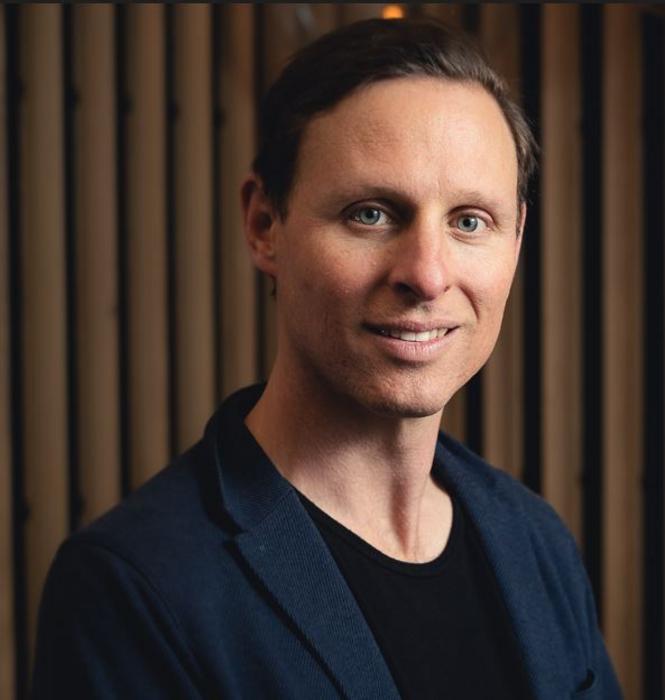t’s official. Getting the recommended 7-9 hours of sleep a night is currently out of reach for almost one-third of the population as Flinders University experts found 31% of adults had average sleep durations outside the recommended range.

Credit: Flinders University
t’s official. Getting the recommended 7-9 hours of sleep a night is currently out of reach for almost one-third of the population as Flinders University experts found 31% of adults had average sleep durations outside the recommended range.
The global study of thousands of adults published in Sleep Health found only 15% of people slept the recommended 7-9 hours for five or more nights per week – and among those who did achieve an average of 7-9 hours per night over the nine month monitoring period, about 40% of the nights fell outside the ideal range.
“This is crucial because regularly not sleeping enough – or possibly too much – are associated with ill effects and we are only just realising the consequences of irregular sleep,” says Flinders University researcher Dr Hannah Scott.
“Clearly getting the recommended sleep duration range frequently is a challenge for many people to achieve, especially during the working week.”
The Flinders research group used sleep tracker data collected by an under-mattress sensor to examine sleep durations over the nine-month period in almost 68,000 adults worldwide. The sample consisted of 67,254 adults (52,523 males, 14,731 females), mainly in Europe and North America, whose sleep recordings were registered by the Withings under-mattress Sleep Analyzer.
Sleeping less than six hours on average per night is associated with increased mortality risk and multiple health conditions including hypertension, obesity and heart disease. Less than 7 hours and more than 9 hours of sleep a day has been linked to adverse health and wellbeing, including digestive and neuro-behavioural deficits.
Female participants generally had longer sleep durations that males, and middle-aged people recorded shorter sleep durations than younger or older participants.
“Based on these findings, public health and advocacy efforts need to support the community and individuals to achieve more regular sleep within the recommended range for their age,” says co-author Professor Danny Eckert, an Australian National Health and Medical Research Council (NHMRC) leadership fellow and director of Sleep Health research at Flinders University.
“Given what we know about the importance of sleep to health, we also need to assist people to resolve chronic sleep difficulties and encourage all people to make sleep a priority.”
Regular snoring is also associated with hypertension, according to another new study from Flinders University.
The Flinders sleep researchers’ tips to achieve a better sleep regime include:
- In the short term, people are advised to try and maintain a sleep schedule that is sufficient for them to feel rested enough, as often as they possibly can. Keeping a fixed wake-up time, even on weekends, and going to bed when you feel sleepy will help ensure you frequently get enough restorative sleep.
- If people can’t keep a consistent sleep schedule due to unavoidable commitments (e.g. shift work), then catch-up sleep is recommended.
- Watch for the symptoms of insufficient sleep such as daytime drowsiness, fatigue, struggling to maintain concentration, poor memory, and potentially making errors while driving. This may be due to not sleeping enough, or the sleep not being restorative enough due to poor sleep quality – as occurs with obstructive sleep apnoea, for example.
- People who feel like they might not be sleeping enough, especially those currently sleeping less than seven hours, could test whether allowing a longer sleep schedule or naps helps them sleep longer and results in them feeling more rested.
- For those without a sleep disorder, following good sleep hygiene may be beneficial. Avoiding caffeine and alcohol in the afternoon/reducing their caffeine and alcohol consumption across the day, and/or avoiding a heavy meal close to bedtime may help people fall asleep faster and sleep for longer. Others may not see much benefit from following sleep hygiene advice, but it is worth trying as it may be a relatively simple fix to their sleep problems.
- People should consult their GP in the first instance if they are concerned about their sleep. Treatment options are available through referrals to sleep specialists for a variety of sleep disorders such as sleep apnoea and insomnia.
The article, Are we getting enough sleep? Frequent irregular sleep found in an analysis of over 11 million nights of objective in-home sleep data (December 2023) by Hannah Scott, Ganesh Naik, Bastien Lechat, Jack Manners, Josh Fitton, Duc Phuc Nguyen, Anna L Hudson, Amy C Reynolds, Alexander Sweetman, Pierre Escourrou, Peter Catcheside and Danny J Eckert has been published in Sleep Health (Elsevier) DOI: 10.1016/j.sleh.2023.10.016
Journal
Sleep Health
DOI
10.1016/j.sleh.2023.10.016
Method of Research
Data/statistical analysis
Subject of Research
People
Article Title
Are we getting enough sleep? Frequent irregular sleep found in an analysis of over 11 million nights of objective in-home sleep data
Article Publication Date
9-Dec-2023
COI Statement
Outside the submitted work, DJE has had research grants from Bayer, Takeda, Invicta Medical, Apnimed and has served on Scientific Advisory Boards for Apnimed, Invicta, Mosanna and as a consultant for Bayer. PE serves as a consultant for Withings. Withings provided sleep analyzers for the validation trial. None of the other authors have any relevant conflicts to declare.




